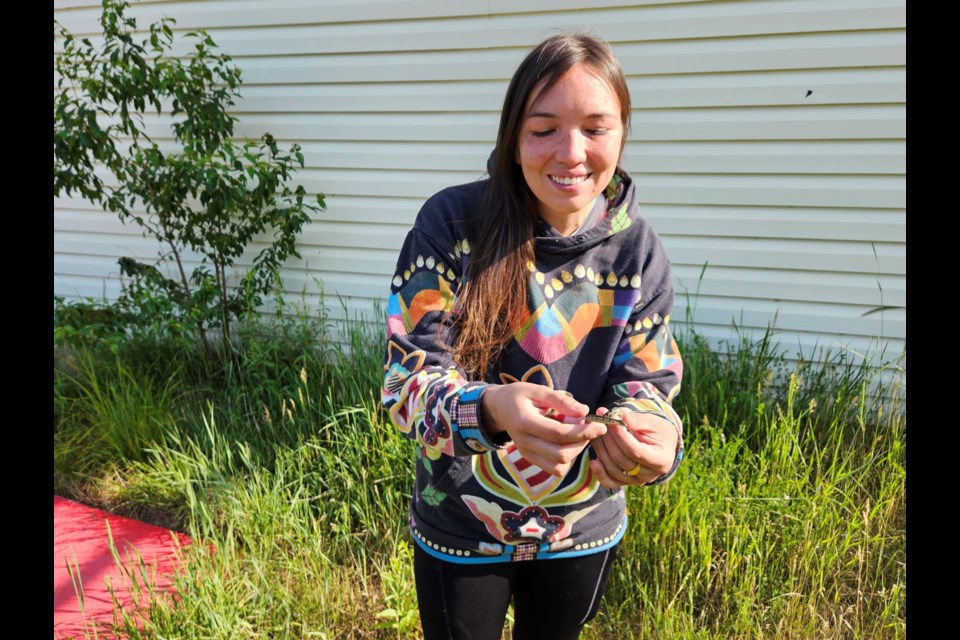Chevaun Toulouse of Sagamok, is a recipient of Nature Canada’s Young Nature Leaders Grant to “empower, uplift and support young people looking to implement a community-based project centred around nature and sustainability.”
The $1,000 grant was awarded to only ten of the applicants from across Canada.
ElliotLakeToday asked Toulouse how she felt when she heard the news. “I just saw it yesterday. I was showing my family. I couldn't believe I was one of the recipients. I was so excited!”
Toulouse plans to use the grant for land-based cultural programming in Sagamok, a First Nations community on the North Shore between Sudbury and Sault Ste. Marie.
“Growing up on Sagamok Anishnawbek gave me an interest and respect for the natural environment. I explored my surroundings and become familiar with the plant and animal species that lived around me and in my community. I've been away for the last 10 years doing post-secondary and working and now I've moved back.”
Using her work with other First Nations and what she has gained from university, “I’m really hoping to be able to involve the youth in my community.”
The grant will fund the purchase of additional acoustic monitoring equipment. “I'm hoping to identify species at risk, bats, birds, and frogs in the community. I have a mobile bat recorder. You can't hear them with your ears, but this gets it.”
“I've been able to figure out what birds are migrating through Sagamok in the early spring-summer. So, I've been gaining a lot of information. I'm really looking forward to turning it into something more tangible that I can share.”
Toulouse is also experimenting with cold-hardy garden plants native to the area.
The project work is very satisfying. “Getting to dedicate your time to something so great like that, you know, everyone enjoys it.”
And she sees additional value in the project for bringing the Ojibwe language to her generation and future generations.
“My goal is to find enough Ojibwe words to identify ecosystems and create resources for our youth in the community and other Ojibwe speakers or organizations that are interested.”
“My grandparents were fluent speakers. It’s just my dad and I that aren’t. So, I'm looking forward to changing that with my son, the newest generation here. My son is two, and he's really inspired me. I want him to know his language and know the culture.”
Language research has taken Toulouse to documents as far back as the 1800’s. She pointed out how the Ojibwe words for the flora and fauna “fit into the oral stories and traditions. [They] all fit into a larger puzzle of the culture and the stories. I think it's really important to preserve that, conserve it and bring it back.”
It’s more than knowledge. “Environmental programming is really good for mental health. It's helped me a lot and I feel that being out in the environment can help others.”
“Everyone shares the environment,” she said. “You're in something so much bigger than yourself.”
